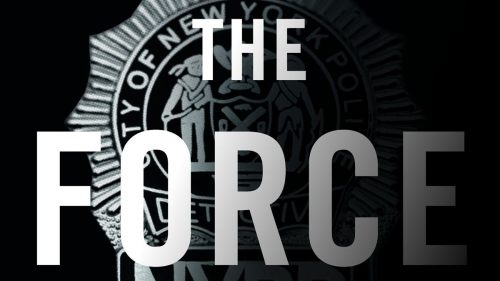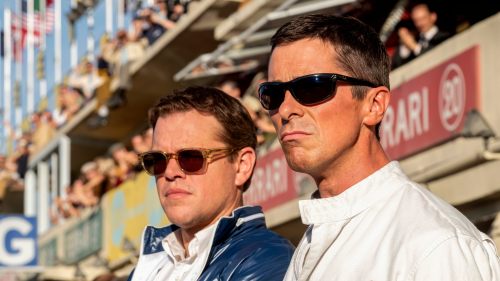TIFF 2017 Review: SUBURBICON Provides Dark And Damning Social Satire
For a film that traffics heavily in nostalgia Suburbicon ironically feels akin to many contemporary films and events. There are shades of Get Out at play, and echoes to the hate spewed by a rising tide of historical revisionists and racist zealots. It’s all the more telling, then, that the tale, written by the Coen Brothers back in 1986 and revised by director George Clooney and his producing partner Grant Heslov, could easily speak to the undercurrent of bigotry that has plagued America in nearly every age.
Starting with a visually splendid travelogue through late ‘50s/early ‘60s graphic design, we see the “ideal” community of Surburbicon come to life, with its Lily white inhabitants forming a buttress against the urban landscape. Into this haven moves a couple with their young son, so-called “Negros” that are sure to be the downfall of the community. As walls are built and tempers allowed to flare while police stand around doing nothing, the ravings of the close-minded echo along the perfectly manicured lawns.
While the neighbors focus on perceived threats, real evil is being done just next door, right underneath the noses of the indignant. The storyline provides a crude, brutal metaphor, but it’s no less scathing in its execution, excoriating the mob mentality and showcasing that real sadism can be masked underneath the most polite and acceptable of appearances.
As a style exercise, Clooney’s film is superb, with the vintage look and attention to detail a joy to behold. With a rich cast that includes Matt Damon, Glen Fleshler, Jack Conley, Michael D. Cohen. Gary Basaraba and young Noah Jupe, there’s plenty of dialogue to chew on and scenes to enjoy. Iconic Coenesque performers Oscar Isaac and Julianne Moore lend further connection to the original scribes, and Robert Elswitt’s photography and Clooney’s compositions echo many works, from Blood Simple, Hudsucker Proxy, Fargo to even Raising Arizona.
It’s these echoes that may both delight and dilute the sense of originality for the work, with only a few segments (including Isaac’s electric turn) rising to the level of the masters Coen. Given that the last two seasons of the Fargo television show has taken Coenesque homage to new, ecstatic heights it’s hard not to find Suburbicon slight in comparison.
As a storyline, much of the enjoyment will be met by the surprises that play out, even if most are telegraphed quite heavily. It’s hard to say whether this broad satire needed a bit of attenuation, but at times the heavy handedness works, at others it causes the pacing to lumber along.
By the end, when we get Hitchcock by way of Joel and Ethan adding up for homages of homages, we’re treated to quite an enjoyable thriller with a bite. Damon’s style fits the part well, and Moore again shines in every scene she’s in. There are some terrific faces assembled, round and weathered, and even if the drums of metaphor are beaten loudly, they’re at least entertaining while being provocative.
Clooney has an earnestness to his direction that sometimes leans towards cloying (think the well-meaning Monuments Men or Leatherheads), but Suburbicon provides a subject right for his tone, making this easily his best since the ever more relevant Good Night and Good Luck. The inclusion of vintage television soundbites works even as its content disturbs, weaving a sense of truth through the otherwise plastic paradise of Suburbicon’s streets.
Dark and damning, Clooney, with help from the Coens’ script, has crafted an engaging, provocative piece that’s all the more galling when it is recognized that the themes Suburbicon touches upon are as current today as they were when ignorance was even more palatable and commonplace. Beyond the polemical aspects you’ve got a taut thriller with plenty to chew on, making for a film that may not quite achieve the heights that it strives for but is laudable all the same.



